The Elsinore Affair: Who Really Killed Hamlet’s Father?
“‘And do you know what I’m going to do now?”‘
‘No,’ she said. ‘What?’
‘Buy a copy of Hamlet,’ I said, ‘and solve that!'”
The Macbeth Murder Mystery, by James Thurber
At first, I was sure that Hamlet must have killed his father.
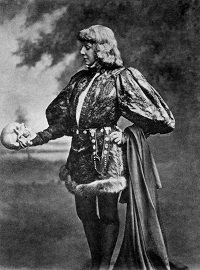
After all, look at the facts. He was the king’s son, after all. That doesn’t count for as much in an elected monarchy as it does in an inherited one, but it does count for a lot. Of course, he wasn’t elected king, which would have put a crimp in that plan. But then it becomes pretty clear that he’s angling to bump the new King off, and even staging plays to plant a seed in the public mind of the idea that evil King Claudius murdered his brother. He even started acting out the part of a madman – trying for an insanity defence, perhaps. But then, when you look closer, you realise it can’t have been Hamlet. The man who killed his father was not someone who would flinch at killing a sleeping man, and he couldn’t even kill a praying one. So that’s Hamlet – a paper lion, all bark, no bite.
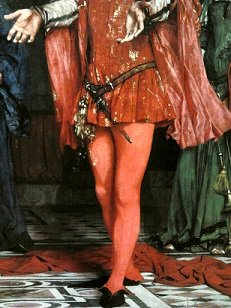
The next guy in the frame is Fortinbras. Don’t forget, he’s the one who winds up on top after this is all done. Swoops in, takes the throne, “Hamlet totally named me heir before he died, you guys”. Plus Hamlet’s dad killed his dad, so there’s one heck of a motive right off the bat. The problem here though is that he’s not really got the opportunity. Nor does it really work narratively, either. Which, I admit, is meta-gaming it a bit but seriously, a killer who only shows up in the final act? That only really works in noir, and while the prince may dress in black and everyone dies at the end, you can’t have noir when everyone’s wearing tights. So Fortinbras is out.
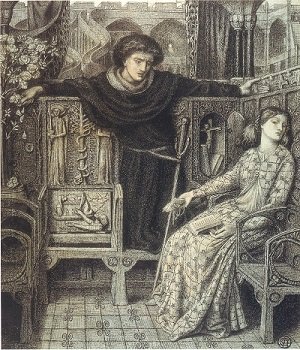
Ophelia, then, seemed more promising. After all, narratively it definitely works. Ambitious young woman, marrying a prince, why not upgrade him to King? It might even explain why she goes to pieces so quickly. Having your boyfriend throw you over is one thing, but having him do it after you’ve killed for him? That’s got to be a low point. Then he goes and stabs her dad, which really is just the icing on the cake. So Ophelia seems pretty sound. But there’s one thing that doesn’t explain. The ghost.
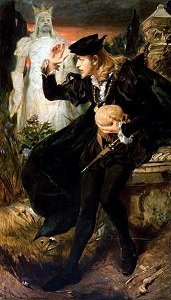
Now, we all know about the ghost, right? Crazy old Hamlet thinks his dead dad is telling him to kill – classic stuff. But maybe there’s a bit more to it than that. Hamlet see the ghost twice – the first time, all got up in lights late at night on the castle wall. The traditional setting for a bit of flim-flammery. This ghost pops up, scares some of the more gullible guardsmen, and next thing you know Hamlet gets pulled out there to see what’s going on and it all kicks off. Well, I mean he’s been moping around the castle in mourning dress for ages, so it’s clearly not going to take too much to push him over the edge – which is obviously what someone was counting on. Ah, I hear you say, but what about the next time he sees the ghost? Well, we’ll get to that.
You see, what we’re looking at here is a classic mastermind manipulating the action from behind the scenes. He sits at the centre of his web, and controls everything. The ghost is his doing, of course, obviously, but then there’s Claudius getting suspicious of Hamlet, as well. Conflict at the heart of the royal family, fostered by someone playing a very long game. Which is why it’s pretty clear that this mastermind has been cleared off the board by the time everything goes to pieces at the end of the play. Killed as collateral damage to his own plots, stabbed by the very weapon he had created to set up his own dynastic ambitions. I’m talking, of course, about Polonius.
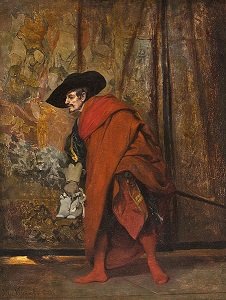
If you’re looking only at surface appearances, Polonius just looks like a mildly ambitious old man. His daughter is marrying in to the royal family, his son is heading off to Paris, and he’s acting as a moderating influence on the king. But then, when you look at it again, his actions seem darker. He sends his son off to Paris with an earful of lofty advice, and then immediately sends a servant after him to spy on him – having him spread malicious rumours about Laertes in order to isolate him. He tells his daughter to play hard to get with Hamlet, and then tries to spin Hamlet’s distraction to the King as just a result of that frustrated flirtation. He’s keen on the marriage, and he’s trying to get his son to keep his nose clean. After all, consider how the monarchy works in Denmark at the time. The marriage makes his family the king’s kin – and then the death of the king and the execution of the murderer Hamlet would leave his son eligible to become, like Claudius, an elected monarch. What ambitious father could do any less?
Moreover, he’s the one who brings the spy Voltimand to give his report to the king – clearly he is tied directly into the intelligence apparatus of the state. Perhaps even the King’s spymaster general. It’s in this capacity, then, that he goes to spy on Hamlet, only to be spotted and slain in mistake for Claudius. And then, as Polonius lies dying, Hamlet once again sees the ghost. The pale features of the dying man, perhaps, suddenly seeming familiar? At any rate, this is where things go wrong for Polonius’ plan. Without his hand on the tiller his son and daughter wind up dead, and Denmark gets subsumed by Norway. Both the children he plotted for and the country he wanted to give them, destroyed by his ambition.
Or else Claudius the wicked uncle did it. But what kind of story is that?
Images via wikimedia.
